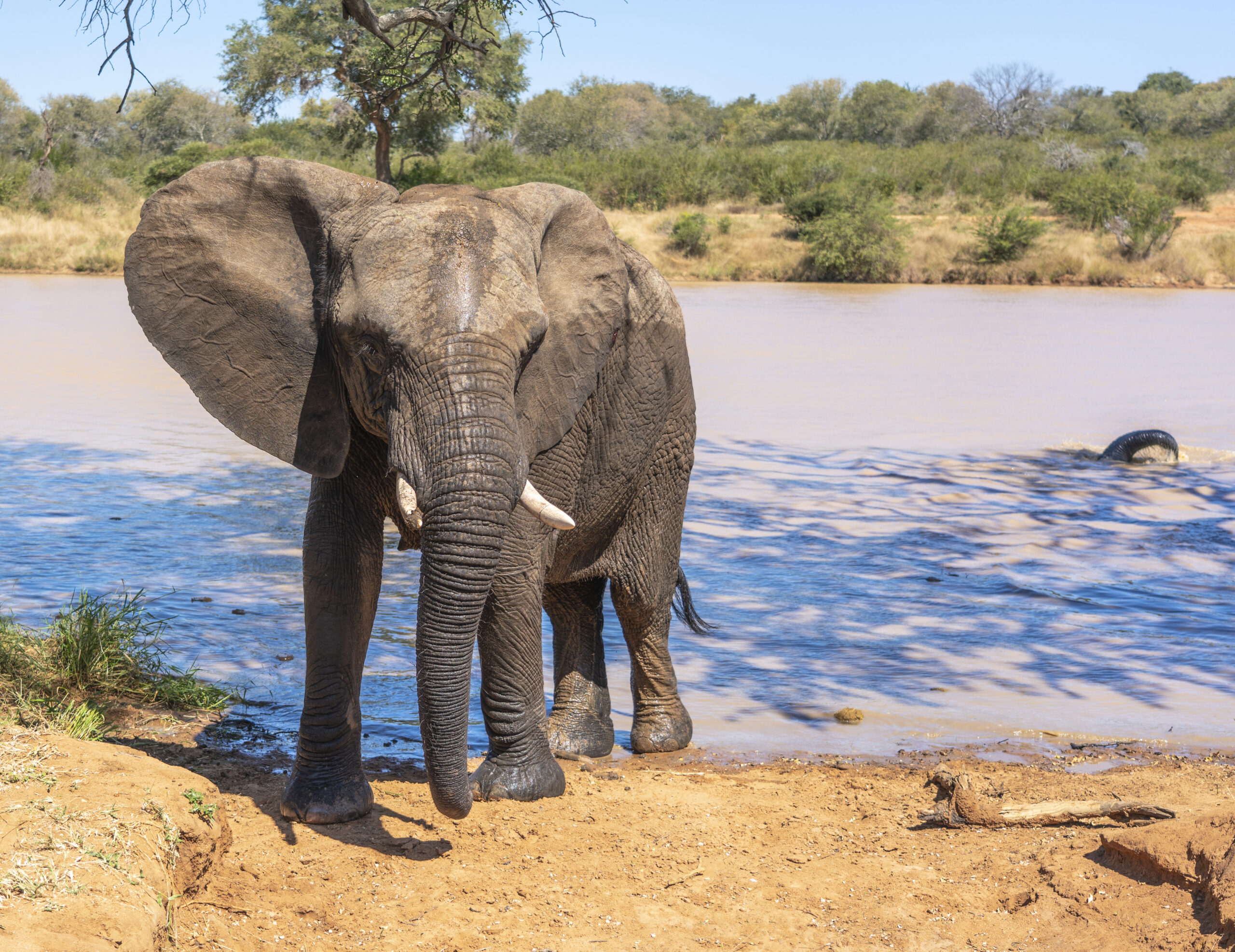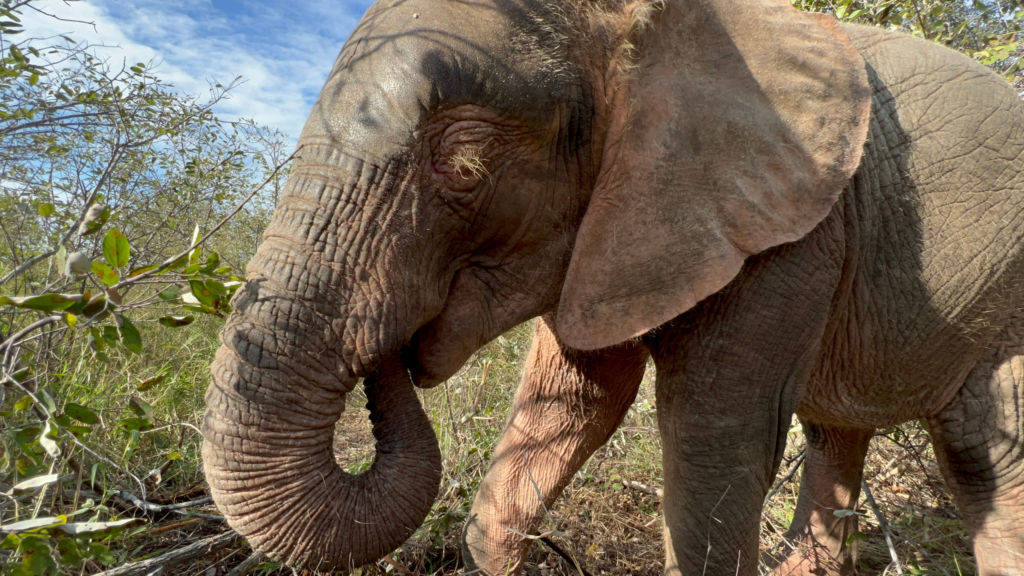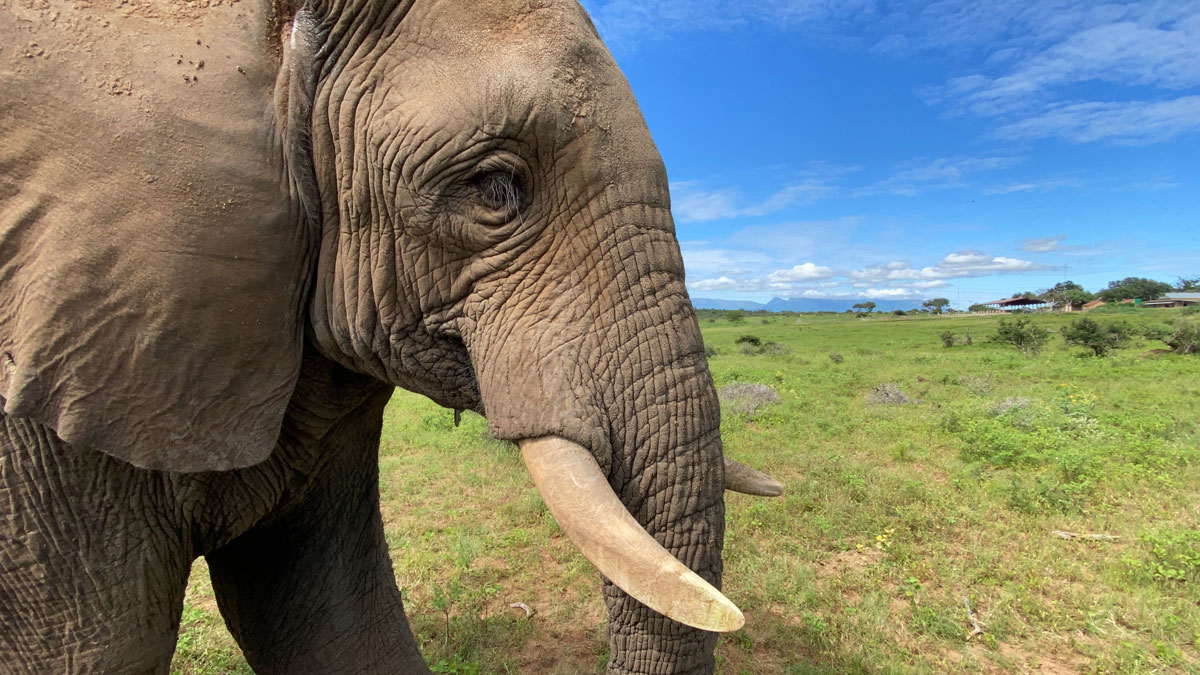Since Fenya, the second elephant calf snare victim brought into our care, arrived on 17 February 2021, she has had a bumpy ride, suffering the complications of her severe starvation and dehydration, even more so than the effects of her devastating wounds caused by the poacher’s wire snare around her head.
Our HERD care team have managed to gain her trust through tremedous patience and showing her love and care and providing her with safety, fresh food and water around the clock. Slowly, she has allowed us closer and closer and is drinking from her milk bottle perfectly and even now, in her new nursery, she walks around the garden much more calmly than ever, without feeling the need to be defensive.
What is most pressing for her recovery and survival at this point is getting her to gain weight and strength, and a lot of it. With her up to two months of being alone in the wild with the snare around her neck, she continued to deteriorate and arrived at HERD already emaciated. As her initial fight wore off, we found her slipping, the food and milk she was taking in was not enough.
We ran a blood test and found her red blood cell count and albumen levels were very low. We wanted to run a blood transfusion but our veterinarian needed her to gain weight and strength ahead of the procedure which needed sedation and could cause adverse effects with her being weaker.
But then she dipped and became completely listless and unable to lift her head or move her trunk. She was still standing but slipping, slipping. We had to go ahead with a transfusion or we risked losing her. Dr Rogers and his team from Provet Veterinary Services arrived just in time to take blood from Setombe in the Jabulani herd and give Fenya the new life she needed.
For the transfusion, Setombe was given a BAM standing sedation and our carers kept watch over her throughout the procedure as Dr Rogers and his team took 6 bags of 500mgs (3 litres) of blood from her. This was then administered to Fenya, along with a drip.
Fenya had been too weak to undergo sedation, but once the new blood started to enter her veins, she regained a little pep in her step and Dr Rogers was able to give her a gentle tranquiliser, to ensure she didn’t pull out the tubes or hurt the team. She was also given a drip and soon, with the antidote to wake her up fully, she was back on her feet, drinking milk, munching leaves and marulas, with energy to give Doc one last chase before the night was over.
She was alive, but she was still very weak. Her low protein, iron, glucose and albumen were making her healing difficult. Dr Rogers returned again the next day to give her another drip and administer a starch colloid to help her blood to gain osmotic balance.
Since this, she has improved slowly, a little more each day. She has had more energy and higher glucose levels in the last two days, and has been walking out in the greater garden and allowing Lammie and our team close to her.
We are not out of the woods yet, as her body has a lot to overcome, but thanks to the incredible help from our vets and experts, we are hopeful that this little 2,5 year old calf who has fought for so long to survive will continue to progress, little by little.
Thank you for the incredible support, messages and donations – it is from funding that we are able to help elephant orphans such as Khanyisa and Fenya to overcome the effects of snaring and poaching.




 Comment
Comment






